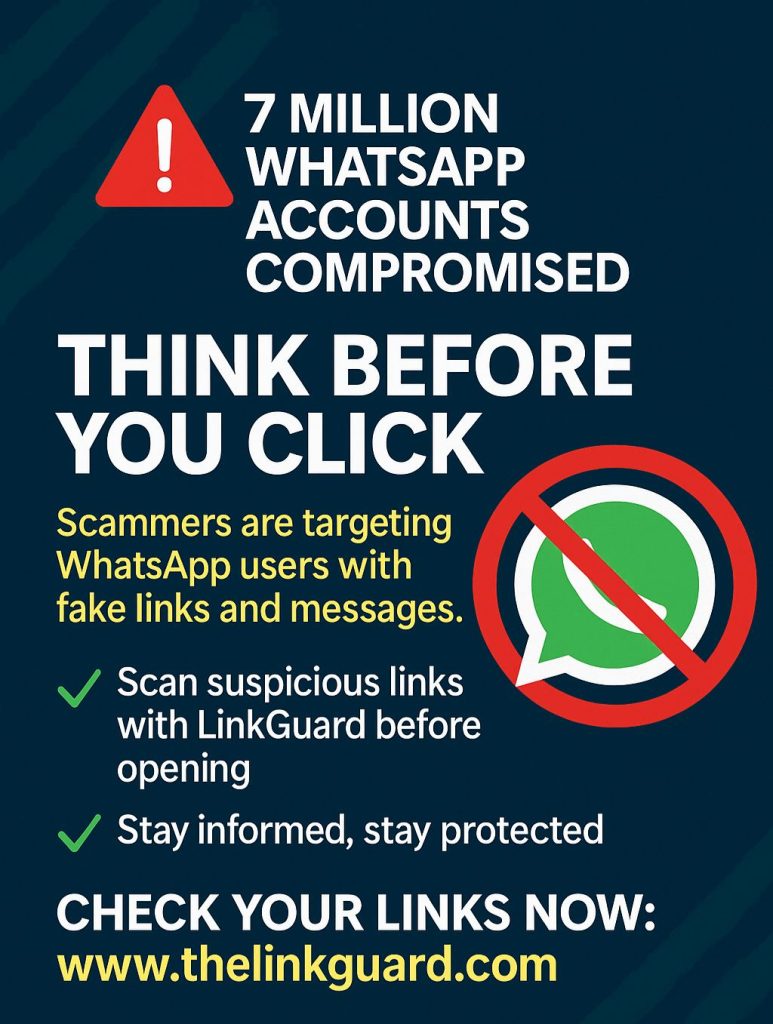Recent reports have revealed a shocking statistic — over 7 million WhatsApp accounts have been linked to scams, fraud, and other malicious activities. This figure is a stark reminder of how vulnerable digital communication platforms can be when targeted by cybercriminals. With WhatsApp being the most widely used messaging application in Africa and many other regions, the scale of this problem is alarming. From phishing messages to impersonation and fake investment schemes, these compromised accounts are being used to deceive unsuspecting individuals, steal sensitive information, and defraud victims of significant sums of money.
Cybercriminals are increasingly exploiting WhatsApp’s popularity to launch sophisticated scams that prey on human trust. Common tactics include sending fraudulent links disguised as urgent alerts, impersonating known contacts, or promising rewards that lead victims to malicious websites. Once a user clicks on such links or shares personal details, attackers can gain access to bank accounts, install malware on devices, or even take over the victim’s WhatsApp account. The widespread nature of these scams demonstrates how organized and well-resourced cybercrime networks have become.
The situation underscores the importance of heightened vigilance and proactive online safety practices. Users should be wary of unsolicited messages, avoid clicking on suspicious links, and verify the authenticity of any request for personal or financial information. Enabling two-step verification on WhatsApp is a simple but effective measure to protect your account from unauthorized access. Staying informed about the latest scam tactics is equally vital, as cybercriminals are constantly adapting their methods.
At LinkGuard, we are committed to combating online scams by empowering individuals and organizations with tools and knowledge to stay safe. Our AI-powered phishing detection platform can quickly scan suspicious links received on messaging apps like WhatsApp, providing a clear confidence score and helping users decide whether a link is safe to click. In addition, our e-learning platform equips users with practical cybersecurity skills to recognize and avoid scams before they cause harm.
The revelation of 7 million scam-linked WhatsApp accounts is a wake-up call for all internet users. Digital security is no longer optional; it is a necessity in today’s interconnected world. By combining awareness, secure online behavior, and advanced tools like LinkGuard, we can work together to reduce the risks posed by online scams. As cybercriminals become more sophisticated, so must our defenses—and it starts with every individual making cybersecurity a daily priority.

